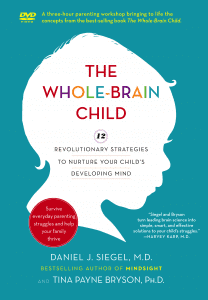The Science of the Magic of Camp
The Neuroscience of How Camp Transforms Kids
I spend most of my professional time talking to people about the brain and how to help kids become less reactive and more resilient. I’m also a mom of three boys, who is often thinking about their optimal development. Using both my professional lens, and my parental lens, I’ve become a huge proponent of the sleepaway camp experience. Camp promotes independence, confidence, friendship-building, resilience, thriving, character, grit, etc. — these are undoubtedly real outcomes for kids who have quality camp experiences.
But why do these outcomes occur? How do these changes happen in short periods of time, and then over years as well? How do we explain this? The answer is that camp gives kids experiences that change the brain.
That’s right: camp is good for kids’ brains. Here’s why.
Let me introduce you to the middle prefrontal cortex. It’s right behind the forehead and eye sockets and is the front most part of the frontal lobe. It gives us the ability to do all kinds of important things: regulate our body and emotions, have insight into ourselves and others, feel empathy, communicate in an attuned way, bounce back after failure, adapt to new situations, make thoughtful choices, and overcome fear. That’s pretty much what’s needed to have a successful life filled with meaningful relationships and the conscientiousness to make things happen in the world. We can think about it as the part of the brain that gives rise to social and emotional intelligence and mental health.
And here’s the point: camp experiences develop this part of the brain.
Let me be clear: Yes, camp experiences influence kids’ minds. But those experiences also actually change the structure of their brains. When kids have camp experiences that require them to overcome fear, be flexible, handle their emotions (especially away from their parents), make decisions on their own, be persistent to master a task, build relationships, and so on, it builds the prefrontal cortex.
The main thing to know is that when the structure of the brain changes, the function of the brain changes. So camp plays a role in how these kids function in the greater world, and ultimately who they become as adults, even on a neuronal level.
Camps that are intentional about all facets of the camper experience and how they train their counselors already inherently provide the kinds of experiences that activate and build this “character” part of the brain. That’s why we can see significant changes in kids who have camp as part of their lives.
All of this is just one reason I’m a believer that camp can be a magical, transformative place for a child. Camps provide unique experiences for kids to be problem-solvers, step outside of their comfort-zone, and have repeated experiences that wire the brain in optimal ways. The way I like to say it is that bunks are good for brains. Experience changes the brain, so when kids have experiences that challenge them emotionally, when they’re given opportunities to make friends that are outside their typical circles, when they have to keep working at a skill to achieve mastery, these experiences change the connections in the brain regarding kids’ capacity for persistence, how they see themselves, and how healthy they can be, both emotionally and relationally.
